German Cross, in Gold, by Deschler (4 rivets, "1", tombac)
CATEGORY: Version
SKU: 01.GTR.0401.101.01.003
Estimated market value:
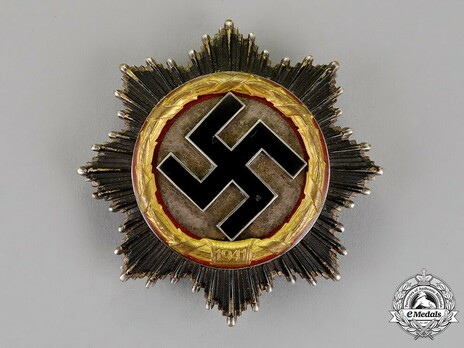
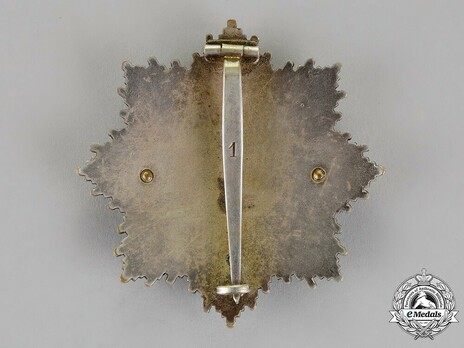
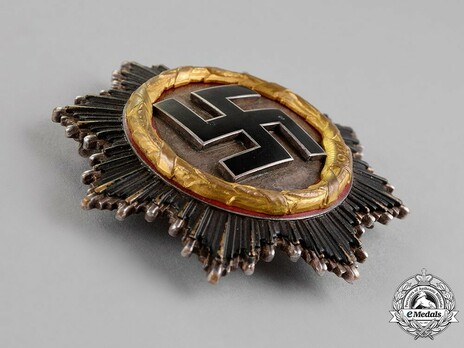
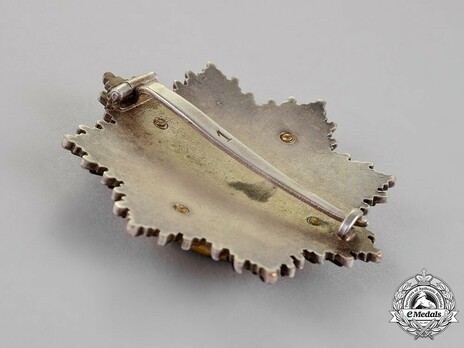
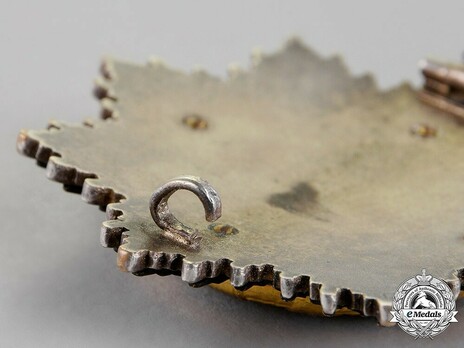
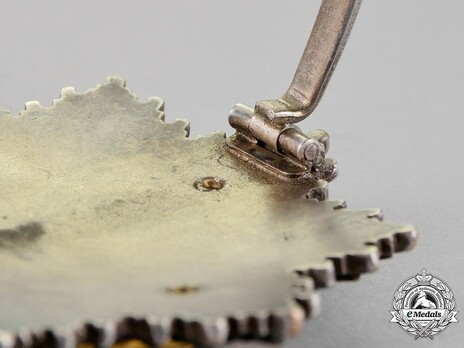
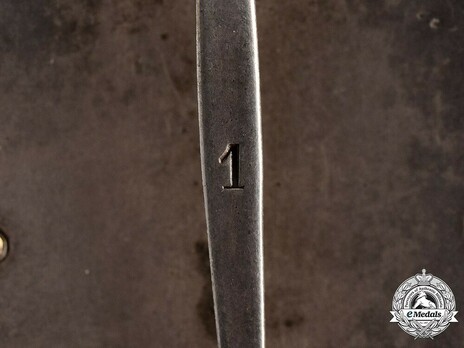
Estimated market value:
(Deutsches Kreuz in Gold). Consisting of a double-overlaid sunburst pattern with eight points; the center with a black enameled rotated (mobile) swastika, with the enamels well preserved without chipping of any kind and only minor contact marks; within a stamped gilded circular wreath impressed with oak leaves, ribbons, and the introduction year “1941”; the inner and outer sides of the wreath feature a thin red enameled rings with a silver core in the middle; the reverse plain but with a broad vertical pinback with a functional barrel hinge and a thick, slightly rounded catch; marked “1” for Deschler on the reverse; measuring 62.98 mm (w) x 62.94 mm (h); weighing 68.6 grams; in overall better than very fine condition.
This version features the company's PKZ number.
The War Order of the German Cross was instituted by Adolf Hitler on September 28, 1941. It was awarded to recognise the contributions of combat and noncombat military personnel who had previously received the 1939 I Class Iron Cross. The German Cross was technically not a part of the Order of the Iron Cross, it is considered to be a pseudo-member of the Order.
The German Cross in Gold was the combat class and it was awarded for actions that were deserving of an accolade higher than the I Class Iron Class but did not qualify an individual for a Knight’s Cross. As such, it filled the large gap between these two award grades. It should not, however, be considered a prerequisite for the Knight’s Cross, as many Knight’s Cross recipients only later received the German Cross.
The German Cross in Silver was the non-combat class and it had the same award criteria as combat class. The German Cross in Silver is much rarer than the Cross in Gold, as only about 2,500 Silver Crosses were awarded, while about 26,000 Gold Crosses were awarded.
The cross was constructed out of 5 parts, not including the hinge pin and clasp. The concave backplate of the cross is shaped like an eight-pointed star that is around 62-63mm from edge to edge. It is topped with a smaller eight-pointed star that is roughly 59mm from point to point. A silver disk with a red enamelled border is attached to the top of the star. The red enamelled border is partially covered by a silver or gold wreath (depending on the class). The institution date of the Order is featured at the bottom of the wreath. In the centre of the wreath, there is a large black swastika. The cross is manufactured out of non-magnetic materials.
The reverse of the cross features between 4 and 10 rivets. It also features a pin and clasp; the clasp is either flat and coke-bottle shaped or it is thin and tapered. Not all crosses feature maker’s marks, but if they do, they will be located on the centre of the backplate, or on the obverse or reverse of the pin.
The earliest examples of the cross were struck from Tombac. Later versions were primarily produced from Cupal. Crosses composed of Tombac are much heavier and at around roughly 60 to 70 grams. Crosses made out of Cupal are lighter and range from around roughly 45 to 55 grams.
The embroidered and cloth version of the cross was instituted to be worn during active combat service. The colour of the crosses' wool backing indicated which branch of the armed service the recipient served with.
Awards were never produced for retail, therefore any German Cross with the LDO “L/” prefix should be viewed with suspicion. However, it has been noted that a few original pieces by Zimmermann were stamped with the firms LDO code (“L/52”), but it is unlikely that these pieces were ever sold.

Comments
Sign in to comment and reply.

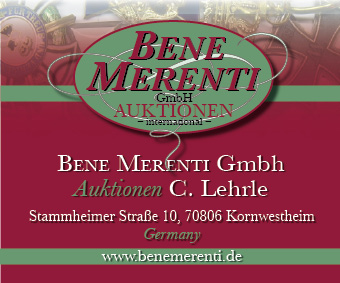
Scroll Top